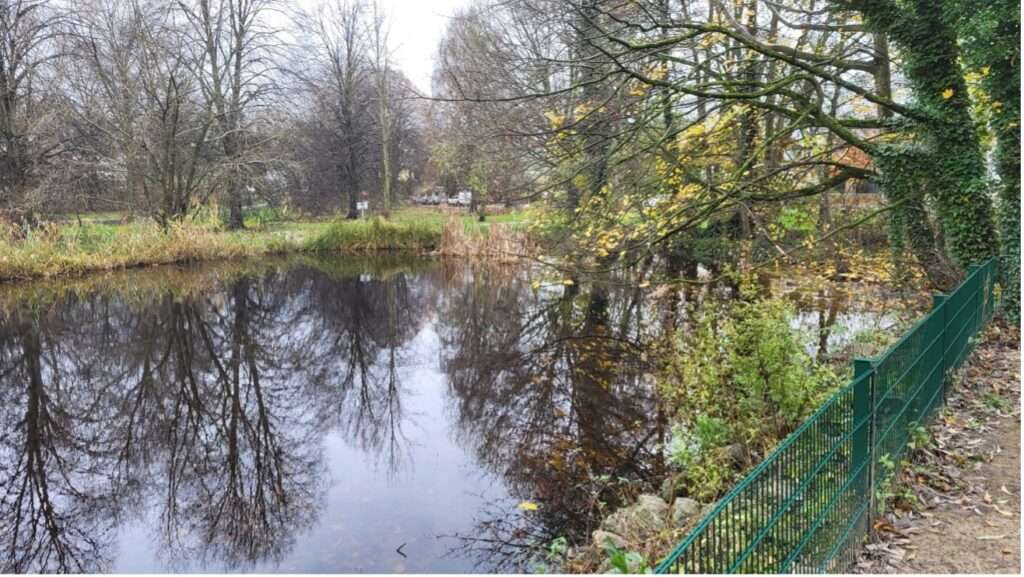Feasibility study for water stabilization: Ententeich Herne-Süd
On behalf of the city of Herne, IWR GmbH, together with BGL Boos conducted a feasibility study in February 2025 on the restoration of the duck pond on Erlenweg. The aim of the study was to analyze the causes of the significant deterioration in water quality in recent years and to develop a sustainable concept for restoring the watercourse.

Background: Water balance and challenges of the duck pond
The duck pond is an artificially created body of still water in the Herne-Süd district. It is mainly fed by groundwater and rainwater. Low water levels and a critical lack of oxygen occur regularly, especially in the summer months. The consequences: Fish die-offs, unpleasant odors and a significant decline in recreational value for local residents.
Objective: Measures for sustainable watercourse restoration
The feasibility study aims to reduce the effects of eutrophication through measures to improve water quality. To this end, both short-term and medium to long-term effective interventions were designed.
Procedure: Analysis and evaluation of the current situation
The following steps, among others, were carried out for a well-founded evaluation:
-
Analysis of historical and current maps
-
Soil and groundwater-related site assessment
-
Measurement of the river bed
-
Water sampling including chemical analysis
-
Camera inspection of the inlet pipes
Based on these surveys, various options for stabilizing the water balance were developed and evaluated with regard to ecological and technical aspects.
Concept of measures for the restoration of the duck pond
The concept envisages a staged implementation, depending on the success of the initial measures:
Level 1 – short-term measures (low expenditure)
-
Establishment of continuous water monitoring
-
Regular water maintenance for sediment control
-
Renovation of the DN 50 inlet pipe
Stage 2 – additional measures if required
-
Integration of roof surface drainage to raise the water level
-
Installation of an aeration system to increase oxygen input
Other options investigated but not currently prioritized:
-
-
Mechanical desludging
-
Infiltration of the pond overflow for relief
-
Other measures such as the infiltration of the pond overflow or mechanical desludging were examined with regard to their technical feasibility and ecological impact, but are not currently prioritized.
You can also read about our topic of water-sensitive urban development

